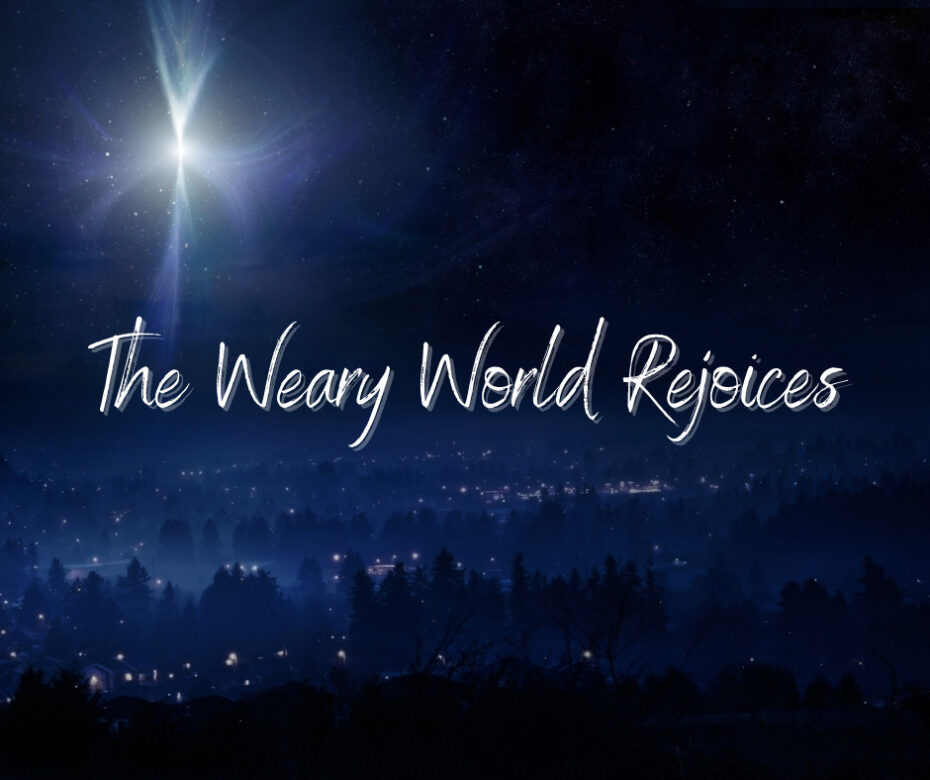Every year my mother and I make handmade Christmas ornaments for our church. It’s a long-standing tradition. They may be hand painted, cross stitched, beaded, or made from simple paper. Whatever the medium, they’re always made with love and the joy of the season.
In 2020 however, Christmas hit a little differently. We often hear that Christmas, despite all the twinkling lights, can also be the darkest time of year for people. Seasonal depression, sickness, or broken families, can add to the weariness that falls upon many at Christmas, even believers. This was made acutely evident in 2020. I doubt I need to drudge up all the reasons that 2020 was a hard Christmas for most of us. However, the general backdrop of that year aside, 2020 was also the year my sister went to be with the Lord. She was only 35 years old. So when Christmas came around, my mother, understandably, didn’t want to make our annual ornaments. To be blunt, it seemed so meaningless. Eventually, we did settle on something and still made ornaments that year. However the usual sparkle of the season was dimmed by our grief.
When seasons of grief and suffering collide with the Christmas season, it can feel like an out-of-body experience. The celebratory atmosphere contradicts everything your mind can process. I am now entering my third Christmas without my sister. However, as I think about her and the Christmases we shared, I’m beginning to see things differently.
My sister Elisabeth was born with cerebral palsy and died because of complications of the disease. In many ways, every Christmas for her was a season of suffering. All 35 Christmases she spent on Earth were hard for her to some degree. Every year, the season of joy was juxtaposed with the brokenness of her body.
Despite all of that, she was an incredibly joyful person. Though she never walked, never fed or bathed herself, she was content. She was quick with a giggle and often spoke of her future in the coming kingdom. For her, Christmas wasn’t just about good food and the presents (although she loved both!). It was mostly a time to celebrate the One who would make all things new, including her body.
For me and those who knew her best, Elisabeth was the physical embodiment of James 1:2:
…count it all joy when you fall into various trials…
We are told in the Scriptures that our trials are actually good news, and that we can find joy in them! My sister knew that better than anyone I ever knew. She understood that she would one day receive a new body that would never get sick. She understood that her Savior was the reason for this. My sister believed in Jesus for the free gift of eternal life when she was a young girl (Eph 2:8-9). She also believed in the promise of rewards for those who follow Him in this life. She understood that suffering in this life would result is maturity and in eternal rewards in the kingdom to come (2 Tim 2:12; Luke 14:14; 1 Peter 1:6-7). She therefore rejoiced in her suffering.
My father, Ken Yates, recently published a book about my sister and her life. If you, or someone you know, is going through a difficult season, I would encourage you to consider getting this book. You can find it on the GES website. While I am biased, I do believe it could help many people find joy in their trials.
This year, as I unwrapped my Christmas ornaments and placed them on my tree, one stood out in my mind. Most people probably wouldn’t notice it nestled among the branches of my tree. It is, after all, just a simple, clear globe with small, silver lettering saying:
“The Weary World Rejoices”
When my mom and I finally settled on what to make for our 2020 ornaments, the simple words of the old hymn seemed fitting. As Christmas draws near once again, I am reminded that it is the broken and weary who glorify Christ the most.
If you are having a joy-filled Christmas with no grief and suffering, I rejoice with you, friend.
However, if your Christmas is riddled with trials, I pray you can rejoice in that too, trusting in the promises of our Lamb, born King.

